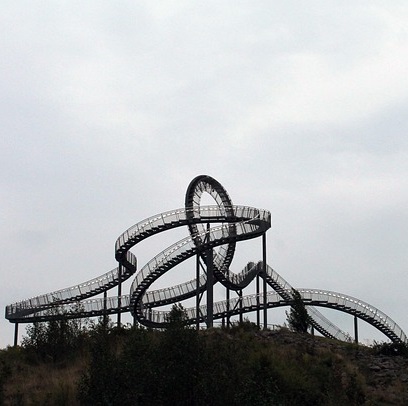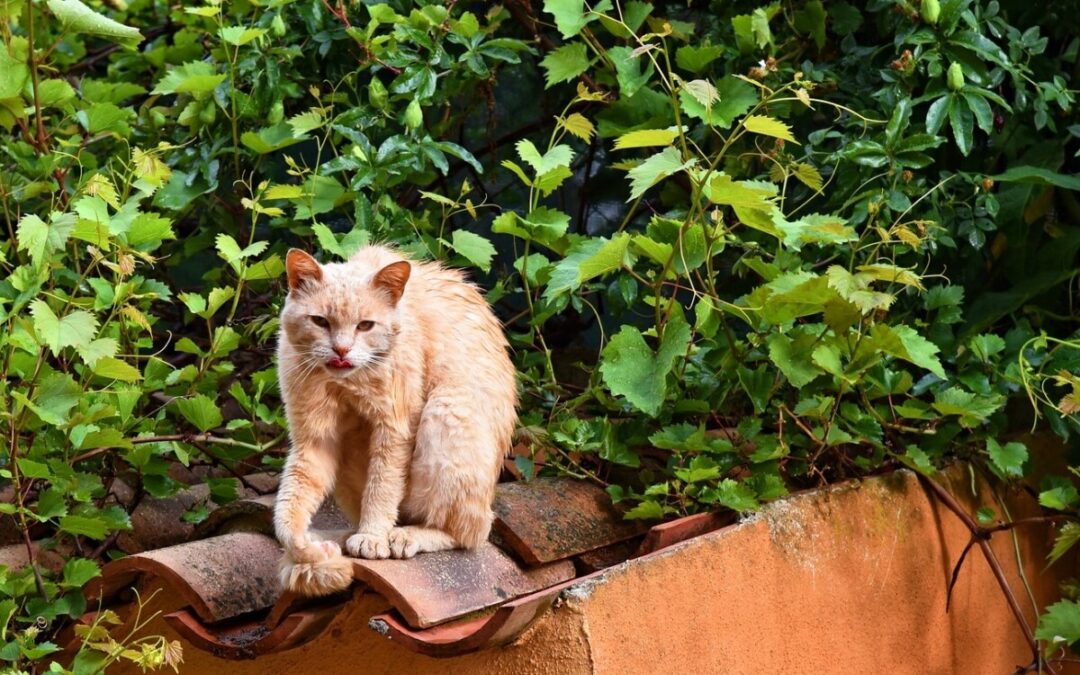
by Richard Subber | Feb 3, 2026 | Book reviews, Books, Poetry, Reviews of other poets
without a lot of passion
Book review:
A Shropshire Lad
by A. E. Housman (1859-1936)
New York: Dover Publications, Inc., 1990
51 pages
reprint of the “Authorized Edition 1924”
Alfred Edward Housman embraced the late 19th poetry style of relentless rhyming,
which limits word choice and the scope of imagery.
His narratives are very simply credible without a lot of passion. It’s too easy to let a singsong rhythm be the main feature of verse after verse after verse. A lot of his poetry is written in iambic tetrameter.
Housman’s A Shropshire Lad does offer some paths to reflections, as in Section II, which is an
acceptance of the reality of the seasons, and acceptance of the reality of the rhythms in our lives,
and a recognition of natural beauty that surrounds us:
Loveliest of trees, the cherry now
Is hung with bloom along the bough,
And stands about the woodland ride
Wearing white for Eastertide.
Now, of my threescore years and ten,
Twenty will not come again,
And take from seventy springs a score,
It only leaves me fifty more.
And since to look at things in bloom
Fifty springs are little room,
About the woodlands I will go
To see the cherry hung with snow.
* * * * * *
Book review. Copyright © Richard Carl Subber 2026 All rights reserved.
Book review: The Scarlet Letter
the beating hearts…by Nathaniel Hawthorne
–
Writing Rainbows: Poems for Grown-Ups with 59 free verse and haiku poems,
and the rest of my poetry books are for sale on Amazon (paperback and Kindle)
and free in Kindle Unlimited, search Amazon for “Richard Carl Subber”
* * * * * *

by Richard Subber | Nov 27, 2025 | Book reviews, Books, Language, Poetry, Reviews of other poets
roller coaster ride…
Book review:
Good Bones
by Maggie Smith
North Adams, MA: Tupelo Press, 2017
99 pages
Maggie Smith knows this: “You could make this place beautiful.”
She has beautiful words, beautiful phrases, even beautiful titles in her book of poems: Good Bones.
She doesn’t make best use or best order of her words and phrases. A reader is undeniably invited to consider “sky,” but the adventure begins with colossal sky and ends with a tunnel, and the sky becomes…a soft suit. This is more roller coaster than it is poem.
Good Bones is a slow-moving roller coaster that approximately takes you nowhere.
* * * * * *
Book review. Copyright © Richard Carl Subber 2025 All rights reserved.
–
many waters: more poems with 53 free verse poems,
and the rest of my poetry books are for sale on Amazon (paperback and Kindle)
and free in Kindle Unlimited, search Amazon for “Richard Carl Subber”
* * * * * *

by Richard Subber | Nov 11, 2025 | Book reviews, Books, Joys of reading, Language, Poetry, Reflections, Reviews of other poets
you don’t have to put it down…
Book review:
A Thousand Mornings
by Mary Oliver (1935-2019)
New York, The Penguin Press, 2012
82 pages
If you know nothing about Mary Oliver, this book is as good as any to make your acquaintance.
The poems in A Thousand Mornings are recognizable Mary Oliver stuff:
“…which thought made me feel
for a little while
quite beautiful myself.” (“Poem of the one world”)
“I hardly move though really I’m traveling
a terrific distance.
Stillness. One of the doors
into the temple.” (“Today”)
This is a slim volume, a light collection.
You can read it in one sitting if you want to.
You just might want to.
* * * * * *
Book review. Copyright © Richard Carl Subber 2025 All rights reserved.
Book review: The Financier
Theodore Dreiser’s villain…
–
Seeing far: Selected poems with 47 free verse and haiku poems,
and the rest of my poetry books are for sale on Amazon (paperback and Kindle)
and free in Kindle Unlimited, search Amazon for “Richard Carl Subber”
* * * * * *

by Richard Subber | Nov 4, 2025 | Human Nature, Poetry, Reflections, Reviews of other poets, Tidbits
Write yourself a note…
. . . what of your rushed and useful life?
Imagine setting it all down—
papers, plans, appointments, everything—
leaving only a note:
“Gone to the fields to be lovely. . .”
by Lynn Ungar
Indeed.
Color me gone.
Give yourself permission to be lovely.
From “Camas Lilies” by Lynn Ungar in Blessing the Bread: Meditations. © Skinner House, 1995.
* * * * * *
Copyright © Richard Carl Subber 2025 All rights reserved.
Book review: The Bartender’s Tale
Ivan Doig’s story, I mostly loved it…
–
many waters: more poems with 53 free verse poems,
and the rest of my poetry books are for sale on Amazon (paperback and Kindle)
and free in Kindle Unlimited, search Amazon for “Richard Carl Subber”
* * * * * *

by Richard Subber | Oct 7, 2025 | Language, Reviews of other poets, Tidbits
you can make sunshine…
“…make sunshine in a shady place.”
from The Sketches of Louisa May Alcott
by Louisa May Alcott
New York: Ironweed Press, Inc., 2001
p. 250
* * * * * *
Copyright © Richard Carl Subber 2025 All rights reserved.
Movie review: A Doll’s House
Henrik Ibsen’s classic on abuse…
–
As with another eye: Poems of exactitude with 55 free verse and haiku poems,
and the rest of my poetry books are for sale on Amazon (paperback and Kindle)
and free in Kindle Unlimited, search Amazon for “Richard Carl Subber”
* * * * * *

by Richard Subber | Sep 25, 2025 | Reviews of other poets, Tidbits
cats are with us…
“…a sandy cat…”
Virginia Woolf said it…(quote)
no, no, not Anonymous…
“Let a man get up and say, Behold, this is the truth, and instantly I perceive a sandy cat filching a piece of fish in the background. Look, you have forgotten the cat, I say.”
Adeline Virginia Woolf (1882-1941)
I am going to try to remember, whenever I indulge in pronouncing Truth, to look for the sandy cat in the background, and to take the cat into account.
Virginia Woolf also remarked on this devastatingly probable truth:
“For most of history, Anonymous was a woman.”
* * * * * *
Copyright © Richard Carl Subber 2025 All rights reserved.
The “dime novels” in the Civil War
Think “blood-and-thunder”…
–
Seeing far: Selected poems with 47 free verse and haiku poems,
and the rest of my poetry books are for sale on Amazon (paperback and Kindle)
and free in Kindle Unlimited, search Amazon for “Richard Carl Subber”
* * * * * *





